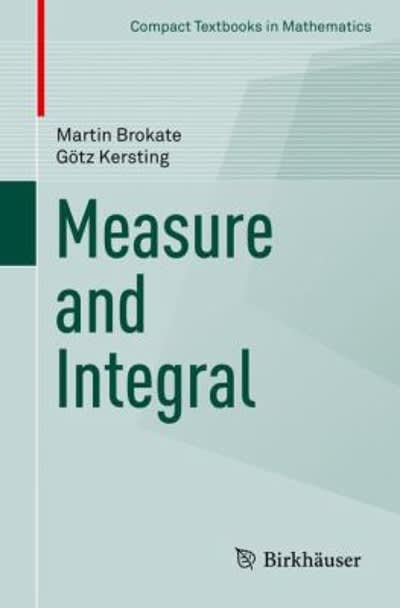Answered step by step
Verified Expert Solution
Question
1 Approved Answer
suppose x can take values, x1,x2,x3 and y can take values y1,y2,y3. Their joint distribution p=p(x=xi,y=yi) Z is independent of X an Y and take
suppose x can take values, x1,x2,x3 and y can take values y1,y2,y3. Their joint distribution p=p(x=xi,y=yi) Z is independent of X an Y and take values z1,z2,z3 with probabilities a1,a2,a3. compute E(3Z+2Y\X)?
Step by Step Solution
There are 3 Steps involved in it
Step: 1

Get Instant Access to Expert-Tailored Solutions
See step-by-step solutions with expert insights and AI powered tools for academic success
Step: 2

Step: 3

Ace Your Homework with AI
Get the answers you need in no time with our AI-driven, step-by-step assistance
Get Started


